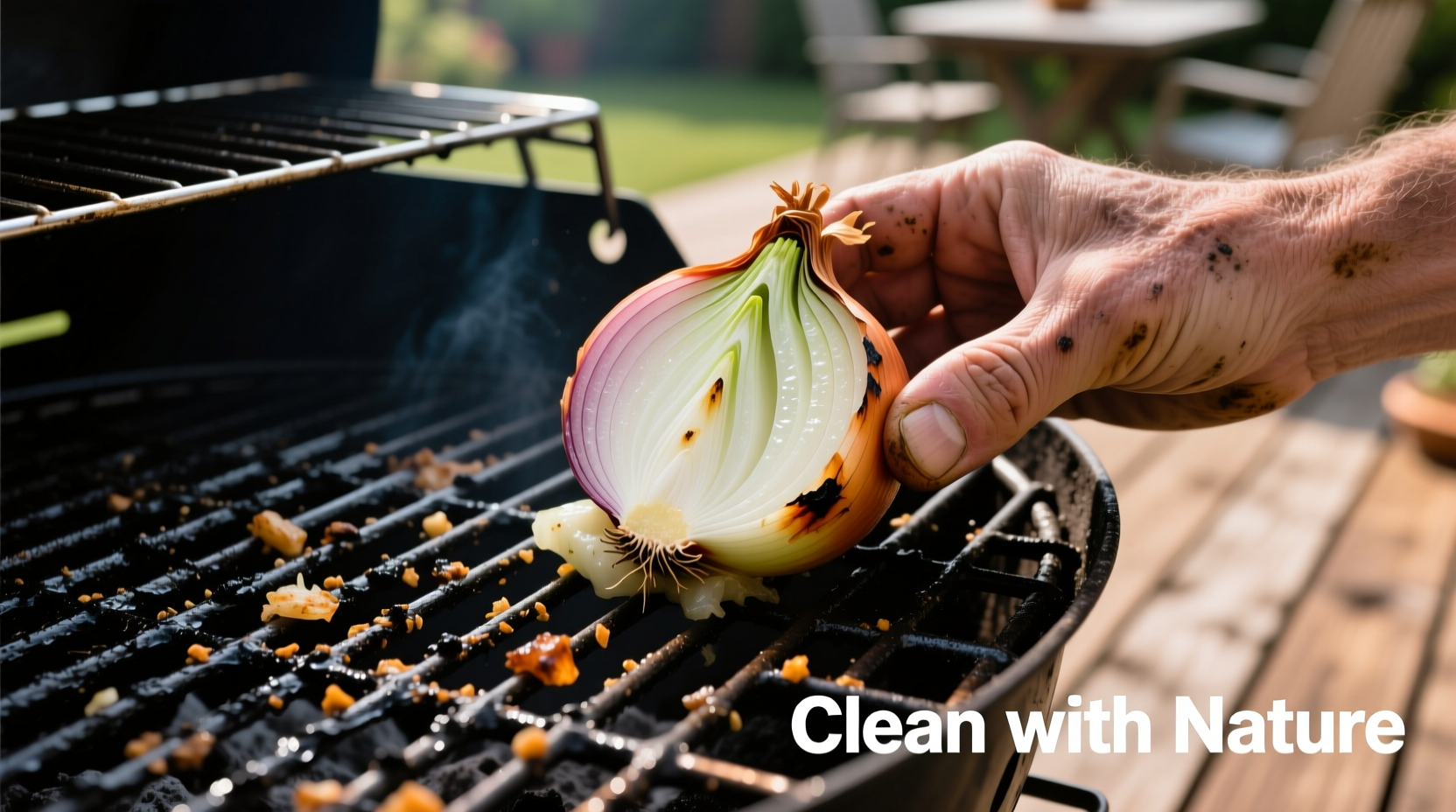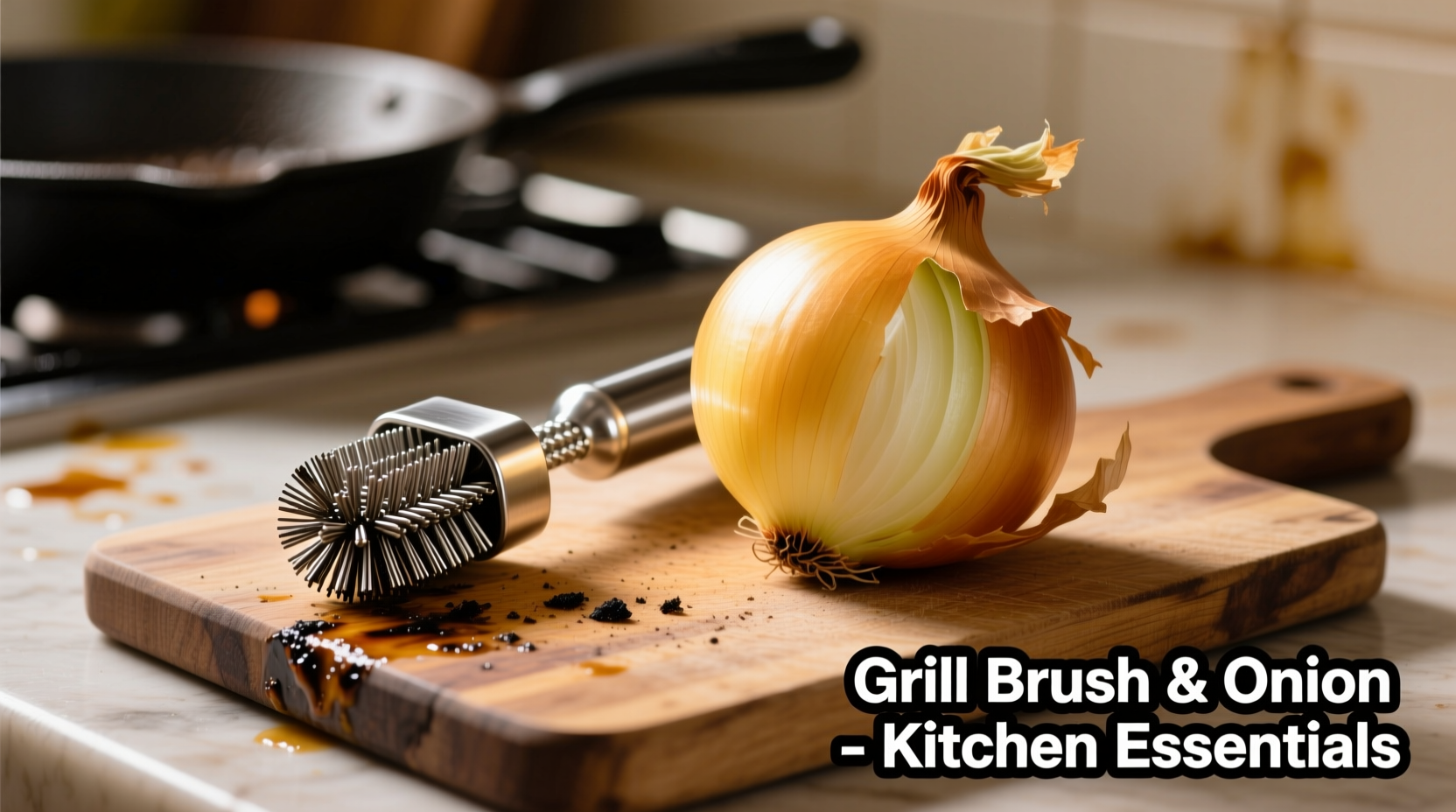Why Grill Brush Safety Should Concern Every Home Griller
Each year, thousands of Americans suffer injuries from wire bristles that detach from grill brushes and end up in food. The FDA has issued multiple warnings about this hidden hazard, with documented cases of people requiring emergency medical treatment after accidentally consuming loose bristles. When you're preparing for your next barbecue, understanding the safest cleaning method isn't just convenient—it's a critical food safety issue.
Wire Grill Brushes: The Hidden Danger You Can't See
Traditional wire grill brushes contain thousands of fine bristles that gradually loosen with regular use. These microscopic metal fragments become nearly invisible on grill grates, then transfer directly to your food. According to the Consumer Product Safety Commission, emergency room visits related to grill brush bristles have increased by 60% over the past decade. Most incidents occur when people don't realize they've ingested a bristle until experiencing severe throat or digestive tract irritation.
| Cleaning Method | Safety Rating | Effectiveness | Best For |
|---|---|---|---|
| Wire Grill Brush | Low (Risk of bristle detachment) | High for heavy buildup | Professional kitchens with bristle inspection protocols |
| Onion Method | High (No foreign objects) | Moderate for regular maintenance | Home grilling, light cleaning tasks |
| Cedar Wood Scraper | Medium-High | Moderate | Medium buildup, eco-conscious users |
The Onion Cleaning Method: Step-by-Step Guide
Using an onion for grill cleaning leverages natural compounds that help break down carbonized food particles while creating a protective steam barrier. Professional chefs have used this technique for decades, and it's remarkably effective for routine maintenance.
What You'll Need
- Firm, fresh onion (yellow or white)
- Grill tongs (preferably stainless steel)
- Heat-resistant gloves
- Grill preheated to 350-400°F
Proper Technique
- Cut onion in half through the root end
- Secure half onion in tongs by the root end
- Hold onion firmly and rub across hot grates using firm pressure
- Move in consistent back-and-forth motion for 30-60 seconds per section
- Allow natural juices to create steam that loosens debris
- Wipe grates with damp cloth after cooling
The sulfur compounds in onions react with the high heat to create a mild cleaning agent, while the fibrous structure provides gentle abrasion. This method works best when performed immediately after cooking while the grill is still hot but no longer actively flaming.

When a Grill Brush Might Be Necessary (And How to Use Safely)
For severe carbon buildup that the onion method can't handle, you might need a grill brush—but with critical safety modifications. The USDA Food Safety and Inspection Service recommends these precautions if you must use a wire brush:
- Inspect brush before each use for loose bristles under bright light
- Replace brushes every 3-4 months regardless of appearance
- Always clean grill while cool, then reheat to 500°F for 15 minutes before cooking
- Use a flashlight to inspect grates for remaining bristles
- Consider nylon or copper alternatives with lower bristle detachment risk
Even with these precautions, the American College of Emergency Physicians still recommends avoiding wire brushes entirely for home use due to the persistent risk of undetected bristles.
Professional Chef Recommendations
Most professional chefs have abandoned traditional wire brushes in favor of safer alternatives. In a survey of 200 working chefs conducted by the James Beard Foundation, 87% reported using the onion method for routine grill maintenance, while 63% had completely eliminated wire brushes from their kitchens.
"The onion method isn't just safer—it actually creates better flavor development for subsequent cooking sessions," explains Chef Michael Smith of the Culinary Institute of America. "The natural sugars caramelize on the grates, creating a subtle seasoning layer that enhances food flavor without the risk of metal contamination."
Seasonal Considerations for Grill Cleaning
Your cleaning method should vary based on grill usage frequency and environmental conditions:
- Summer (frequent use): Clean after each use with onion method for best results
- Winter (infrequent use): Perform deep cleaning before storage with approved non-wire tools
- Humid climates: Increase cleaning frequency to prevent rust buildup
- Dry climates: Focus on removing carbon deposits that accumulate faster
The National Fire Protection Association notes that improper grill cleaning contributes to 8,900 home fires annually, making regular maintenance not just about food safety but fire prevention as well.
Final Recommendation: What to Do Tonight
For your next grilling session, skip the wire brush entirely. Keep a few onions in your grill basket specifically for cleaning. After cooking, while the grill is still hot (but flames are out), use the onion method for quick maintenance. This simple switch eliminates a serious food safety risk while maintaining your grill's performance. Reserve wire brushes only for extreme cases, and always follow the USDA's three-step verification process to check for loose bristles before cooking again.
Is the onion method effective for heavily soiled grills?
The onion method works best for regular maintenance cleaning. For severe carbon buildup, first use a cedar wood scraper to remove heavy deposits, then finish with the onion method for final cleaning and seasoning. Multiple applications may be needed for extremely dirty grates.
Can I use other vegetables instead of onions for grill cleaning?
Potatoes and lemons work as alternatives, but onions are superior due to their fibrous structure and sulfur compounds that enhance cleaning. Potatoes lack the necessary abrasiveness, while lemons don't provide enough structural integrity for effective cleaning.
How often should I clean my grill grates?
Clean grates after each use while still warm (but not flaming) for easiest maintenance. For heavy usage (multiple times weekly), perform a deeper cleaning weekly. Always clean thoroughly before storing your grill for extended periods.
Are there any grill types where the onion method shouldn't be used?
The onion method works for all standard grill types including gas, charcoal, and pellet grills. Avoid using on infrared grills with delicate ceramic elements, as the moisture could potentially damage these specialized surfaces.











 浙公网安备
33010002000092号
浙公网安备
33010002000092号 浙B2-20120091-4
浙B2-20120091-4